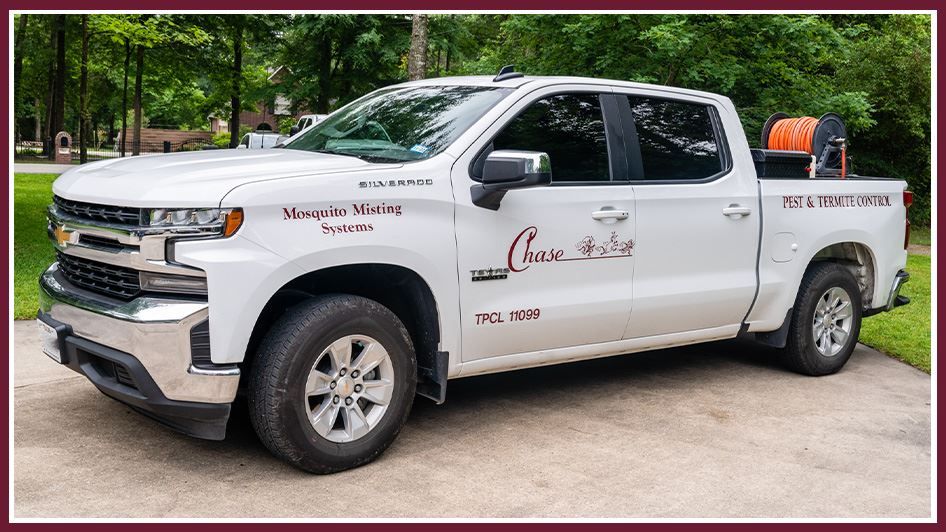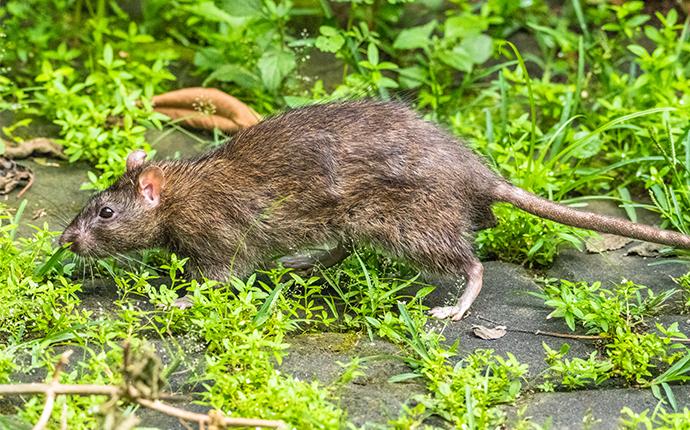

Rodents
(Rodentia)
What are rodents?
Rodents are mammals, and something that every species of rodent has in common is that throughout their life, their chisel-like front teeth are continually growing. In order to prevent their teeth from overgrowing, rodents are constantly chewing on anything they come across, including our homes and belongings.

House mice, roof rats, and Norway rats are examples of rodents that have adapted to living near people. They are common throughout our area of Texas and across the country. In the Conroe area, rodents thrive year-round in our warm-humid weather and can become a problem for home and business owners at any point during the year.
Female mice and rats can reproduce very quickly, giving birth to hundreds of babies in their lifetime! A rodent’s prolific breeding habits and adaptability make these pests very difficult to prevent.
Are rodents dangerous?
If given a choice, mice and rats would want the benefits people provide but would prefer to never come into contact with us. Rodents aren’t aggressive; they tend to be shy and reclusive and do their best to stay out of the limelight. So while being attacked by rodents isn’t generally a concern, they do pose other significant problems when living on our properties and or in our homes.
A rodent’s constant need to chew is one of the biggest problems associated with these pests. They will chew through siding, drywall, wires, pipes, insulation, and anything else they can get their teeth on. Boxes, clothing, shoes, wood trim, and furniture are also regularly damaged by rodent intruders.
As rodents move around, they leave an almost constant urine and feces trail, contaminating the surfaces of structures and food as they travel and feed.
Many diseases and parasites are spread to people and our pets by rodents. Rodents are typically heavily infested with fleas and ticks, parasites that bite, feed on blood, and transmit many serious diseases. Rodents themselves also carry and transmit many bacteria and disease-causing pathogens, including salmonella, rat-bite fever, murine typhus, hantavirus, and leptospirosis.
Why do I have a rodent problem?
You have a problem with rodents because they live all around us. Rodents have adapted quite well to the fact that our habitats have merged and have learned that our properties offer them the things they need to survive. Leaky pipes, yard debris, dense landscaping, gardens, and trash cans can all provide rodents with water, food, and shelter.
Once in our yards, as they explore and look for new food sources or safe shelter, they often end up in our homes, moving inside through spaces they discover in the exterior. Mice only need an area the diameter of a pencil to crawl through, and rats only need the diameter of a quarter!
Where will I find rodents?
Rodents will live almost anywhere and are an issue for people in the country, the suburbs, and urban centers. However, where exactly a rodent prefers to live depends on the species.
- House Mice: Outside house mice nest in tall grass, tree stumps, woodpiles, construction debris, and things like rarely used play structures or playhouses. Attics, basements, storage boxes, cabinets, closets, and other dark, quiet areas provide indoor nesting sites for house mice.
- Roof Rats: These slender rats prefer to nest up off the ground. Outside they nest in trees, vines, woodpiles, and on the roofs of buildings. Inside, attics, the tops of cabinets, roof eaves, rafters, and chimneys are common nesting sites for these rats.
- Norway Rats: These heavy-bodied rats prefer to nest at ground level. Outside, they nest under woodpiles or other piles of debris, along riverbanks, in fields, or under building foundations. Indoor nesting sites usually include crawl spaces, basements, closets, and wall voids.
How do I get rid of rodents?
There is no getting around it; rodents are troublesome pests that want to live near people and will make themselves at home on almost any Texas property. The easiest and most effective way to eliminate rodents and prevent their return is to partner with a local professional. Since 1997 Chase Pest Control has helped people maintain properties that are free of rodents. To combat rodents, we offer the effective services necessary to eliminate these pests, minimizing their dangers and damages quickly.
Give Chase Pest Control a call today and learn more about our reliable rodent control solutions in Conroe, Tx! Let our family protect your family from rodents and other common household pests!
How can I prevent rodents in the future?
When it comes to preventing problems with rodents, it is always best to partner with a professional. In addition to implementing professional pest control services from Chase Pest Control, the following tips will help you avoid problems with rodents.
- Keep rodents out by blocking or repairing as many access points into your home as possible.
- Keep covers on chimneys and vents.
- Place weatherstripping around windows and doors.
- Seal space in the foundation and roofline of your home.
- Fill in gaps around pipes, wires, and other utilities.
- Keep lids on trash cans and compost bins to keep rodents from foraging for food in them.
- Maintain your lawn and garden.
- Indoor and outdoor eating areas should always be free of food debris and cleaned regularly.
- Remove clutter and storage from your yard where rodents could nest and stay hidden.
Learn more about our home pest control and commercial pest management solutions.

Pest-Free Homes, Happy Clients
What Our Customers Are Saying
At Chase Pest Control, your satisfaction is our priority! See for yourself what our customers have to say about working with us.
-
"Truly went above what we had expected."We have never had such good, thorough service! Our tech was polite, knowledgeable, and truly went above what we had expected. Certainly glad we have found them. We have already recommended them to another neighbor.- Anne V.
-
"We have been using only Chase Pest Control for 6 years."Their service-person is always on-time, is always thorough and pleasant. Our home is over 35 years old - but we hardly ever see a roach or ant inside. We highly recommend Chase Pest Control!- John P.
-
"Chase Pest Control is the best in the business!"Fair pricing- Responsive- Professional Technicians! We had an ant issue arise and with a simple phone call we had a technician out with a few hours! You cannot beat their service!- Kendall H.
-
"Nothing but prompt and professional!"I’ve been very happy with Chase Pest Control and the service we have received at my business over the past several years! Stephen has been nothing but prompt and professional. Highly recommend!- AJ D.
-
"Chase Pest Control was highly recommended by friends."They couldn't have sent us in a better direction. Friendly staff, knowledgeable, responsive, caring, and the list goes on. We will continue to use them for pest prevention and any pest problems we may encounter.- Bailey E.
-
"Very friendly, efficient, and respectful of your home."Andy is awesome! He came in and finished services quickly, while explaining their scheduling program, and did a thorough search of my home to ensure it was pest-free.- Lauren F.
-
"Best in the business!"Cary and his team have been exceptional with their pest prevention! Their team has been nothing but great over the last couple of years.- Cameron H.
-
"I would give more stars if I could!!!"Stephen gives outstanding customer service and goes above and beyond to put the customer first! Highly recommend!!!- Michael S.